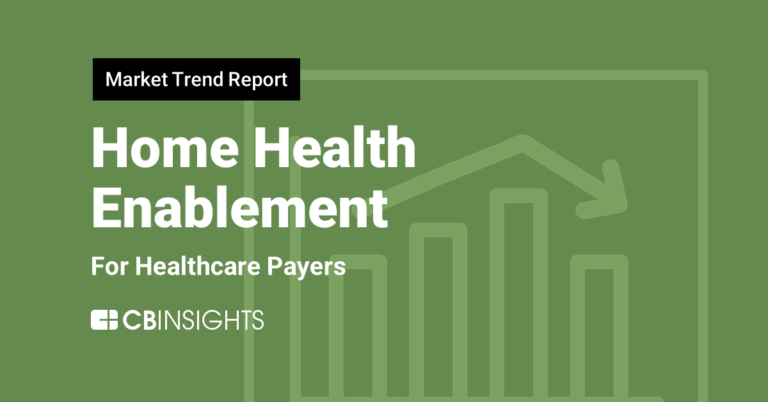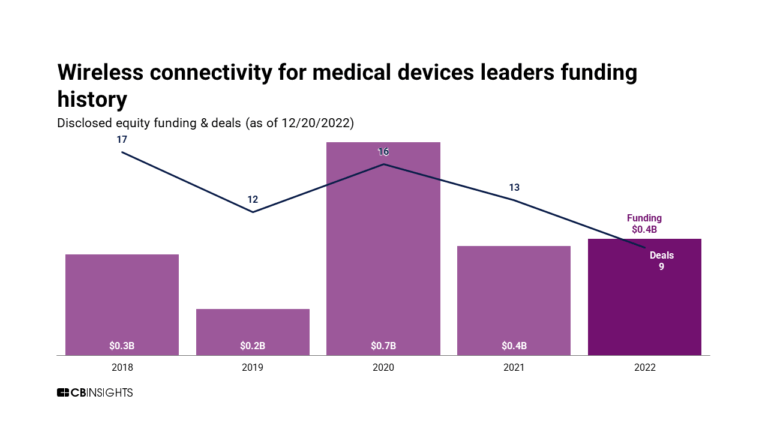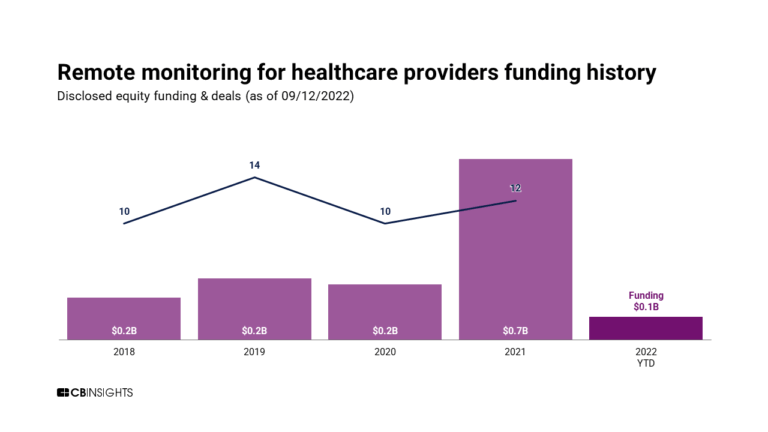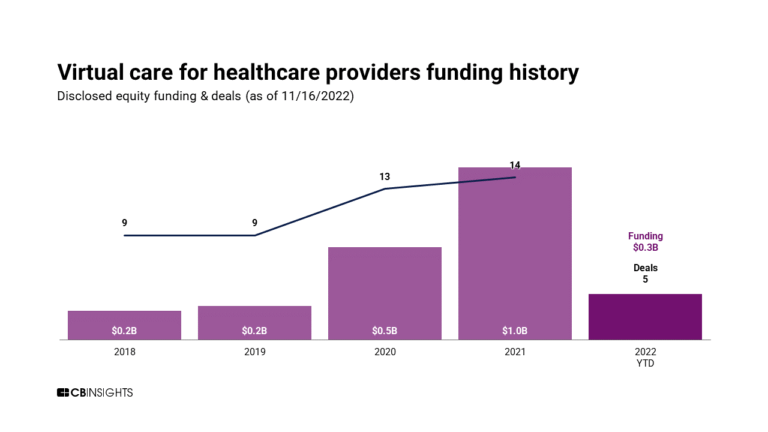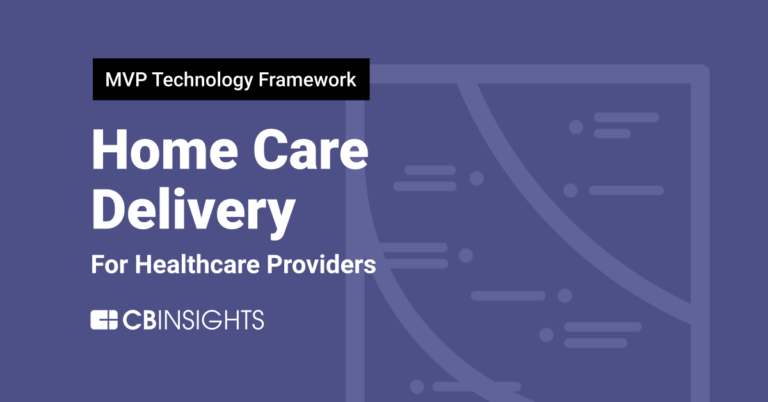
TytoCare
Founded Year
2011Stage
Series D - II | AliveTotal Raised
$150.5MLast Raised
$50M | 2 yrs agoAbout TytoCare
TytoCare connects people to clinicians to provide virtual home examinations and diagnosis solutions. The company's solutions are designed to enable a comprehensive medical exam with clinicians, from any location. It was founded in 2011 and is based in New York, New York.
ESPs containing TytoCare
The ESP matrix leverages data and analyst insight to identify and rank leading companies in a given technology landscape.
The audio biomarkers — lung health market is a growing industry that utilizes audio technology to detect and monitor lung diseases such as asthma, chronic obstructive pulmonary disease (COPD), and pneumonia. This technology can analyze the sound of a patient's breathing and coughing to identify potential issues before they become more serious. The use of audio biomarkers can also provide a non-inv…
TytoCare named as Leader among 15 other companies, including Innovaccer, AliveCor, and Sensely.
Compete with TytoCare?
Ensure that your company and products are accurately represented on our platform.
TytoCare's Products & Differentiators
TytoHome
TytoHome lets patients perform a comprehensive exam at home and share results with a remote physician for a quick, convenient diagnosis. Proprietary guidance technology ensures patients can easily capture accurate exam results so they can be confident that the remote diagnosis is the right diagnosis.
Research containing TytoCare
Get data-driven expert analysis from the CB Insights Intelligence Unit.
CB Insights Intelligence Analysts have mentioned TytoCare in 15 CB Insights research briefs, most recently on Feb 1, 2023.
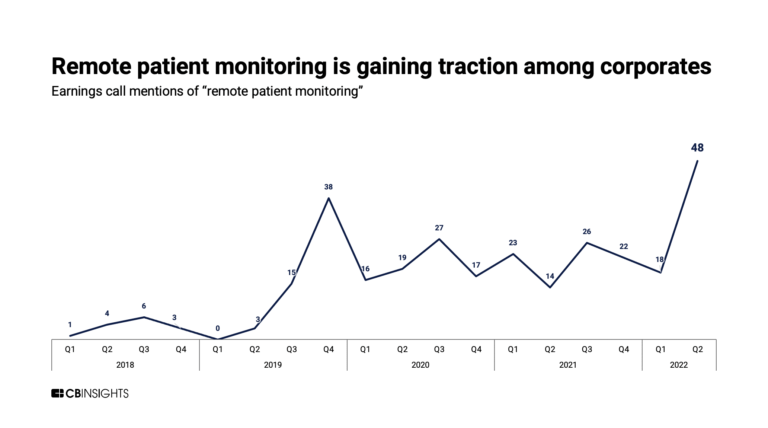
Oct 14, 2022
What is Best Buy doing in healthcare?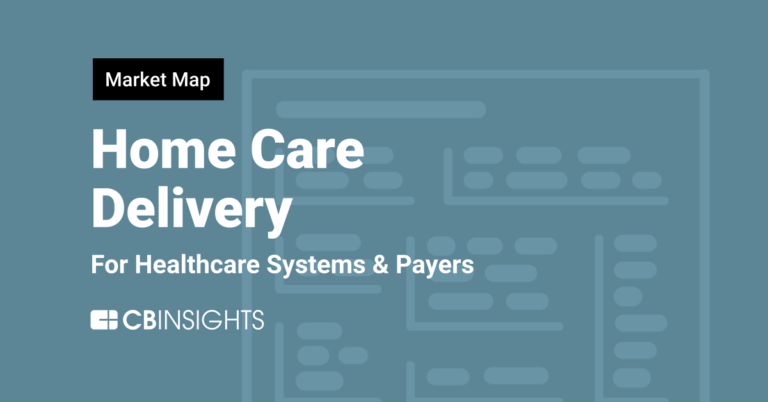
Oct 3, 2022
232 companies reshaping home care delivery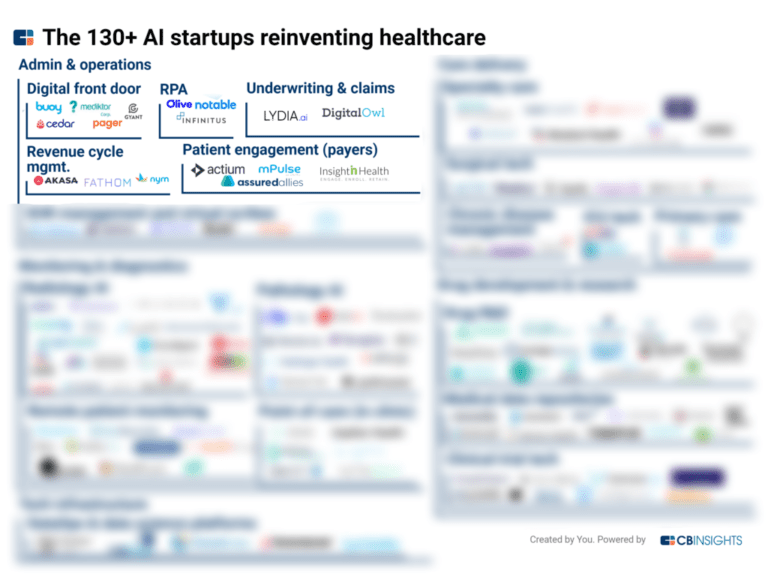
Feb 16, 2022
The 130+ AI startups reinventing healthcareExpert Collections containing TytoCare
Expert Collections are analyst-curated lists that highlight the companies you need to know in the most important technology spaces.
TytoCare is included in 13 Expert Collections, including Artificial Intelligence.
Artificial Intelligence
10,624 items
This collection includes startups selling AI SaaS, using AI algorithms to develop their core products, and those developing hardware to support AI workloads.
Digital Health 150
300 items
2019's cohort of the most promising digital health startups transforming the healthcare industry
Value-Based Care & Population Health
1,066 items
The VBC & Population Health collection includes companies that enable and deliver care models that address the health needs for defining populations along the continuum of care, including in the community setting, through participation, engagement, and targeted interventions.
Medical Devices
12,161 items
Companies developing medical devices (per the IMDRF's definition of "medical device"). Includes software, lab-developed tests (LDTs), and combination products. *Columns updated as regularly as possible.
Conference Exhibitors
5,302 items
Health Monitoring & Diagnostics
3,465 items
Companies developing or offering products that aid in the assessment, screening, diagnosis, or monitoring of a person's state of health/wellness. Excludes companies focused solely on fitness/sports performance
TytoCare Patents
TytoCare has filed 20 patents.
The 3 most popular patent topics include:
- Health informatics
- Medical equipment
- Telehealth

Application Date | Grant Date | Title | Related Topics | Status |
|---|---|---|---|---|
12/28/2015 | 4/12/2022 | Ear, Auditory system, Ear procedures, Hearing, Audiology | Grant |
Application Date | 12/28/2015 |
|---|---|
Grant Date | 4/12/2022 |
Title | |
Related Topics | Ear, Auditory system, Ear procedures, Hearing, Audiology |
Status | Grant |
Latest TytoCare News
Apr 20, 2023
| Membership (fee-based) getty As technology continues to evolve, so does its impact on the healthcare industry. Real-time communication (RTC), namely audio or video remote communication technologies in the general public's conventional understanding, has emerged as a transformative force in healthcare, enabling remote access to medical services and bridging gaps in healthcare access. With the rise of telehealth and the increasing demand for accessible and timely healthcare services, RTC technology has become essential in addressing industry expectations. Covid-19 Impacts Telehealth apps have become a significant source of global trade, and the global telehealth industry has grown exponentially during Covid-19 times. The global pandemic tested healthcare systems worldwide as they attempted to maintain services remotely. Telemedicine applications in the U.S. experienced substantial growth, with a 35% increase from 11% in 2019 to 46% in 2020, according to a McKinsey & Company analysis . In 2020, the telehealth market had a worth of $61.40 billion globally, and it is projected to achieve a value of $559.52 billion by 2028, according to a report by Fortune Business Insights . Capital investments have been a significant growth driver in the telehealth industry as companies and investors seek to capitalize on its potential. A Hampleton Partners' Healthtech M&A Market Report from 2022 showed that telehealth investment totaled $57.2 billion in 2021, up 79% from 2020. MORE FOR YOU • Mental health and well-being. • Clinical trials technology. The demand for telehealth services is expected to keep increasing gradually, making RTC technology critical in addressing industry expectations. Real-Time Communication Technology In Telehealth The gap between traditional healthcare and telehealth primarily concerns accessibility and convenience. Telehealth addresses the challenges by allowing patients to receive medical care remotely through video conferencing, the most commonly used RTC technology in telehealth apps. Amwell and Teladoc are popular telehealth providers that offer real-time video visits with licensed doctors and therapists. Remote monitoring is also becoming popular, utilizing real-time data transmission technologies for doctors to monitor and assess patients. This use scenario allows for real-time diagnosis, prompt action, and time-saving. HealthTap, TytoCare and Eko are all players in this category. HealthTap offers online consultations with licensed doctors and a health library, and TytoCare provides remote examination capabilities. Eko offers a digital stethoscope for real-time heart sound analysis. Advantages Of Telehealth Access to healthcare services in underprivileged and rural areas is one of the most significant advantages of telemedicine. Patients can communicate with healthcare practitioners via telehealth apps using RTC technology, regardless of location, which reduces transit expenses and waiting times. The tech makes healthcare more accessible and convenient for patients who would otherwise face barriers to healthcare access. Telehealth apps have been found to improve patient engagement by offering interactive tools, personalized treatment plans and educational materials. Patients are motivated to participate actively in their healthcare experience, leading to better health outcomes than in traditional healthcare, where patients are often passive care recipients. In addition, telehealth can reduce healthcare costs for patients and healthcare providers. It can lower overhead expenditures and lead to more effective resource utilization for healthcare practitioners in both public and private settings. It makes the healthcare system more efficient and sustainable, benefiting patients and providers. Leverage RTC For Innovative Healthcare Solutions Telehealth applications and services are constantly advancing to keep up with the growing use of RTC technologies. These technologies include: • Artificial intelligence through chatbots, speech recognition and automated health warnings. • Augmented, virtual and mixed reality functionalities for remote diagnosis and medical education. • Remote physical therapy programs that use video conferencing and motion sensors to guide patients through exercises and track their progress. • Virtual reality therapy for patients with mental health conditions, such as PTSD or anxiety disorder. These technologies allow developers and RTC solution vendors to create innovative, user-friendly telehealth apps that leverage real-time interaction technologies. However, some challenges need to be addressed in this rapidly growing industry. Challenges Telehealth services deal with significant volumes of sensitive data, making security, privacy and app safety the first concern. Telehealth reimbursement policies and technological impediments are other challenges. Some individuals, like older people, may need help with internet access, device compatibility or user interface difficulties. Technical issues like bandwidth restrictions and network latency impact the quality of audio and video transmission, affecting face-to-face interaction between physicians and patients over time. The telehealth industry has exciting prospects, but opportunities come alongside significant challenges. Although healthcare organizations have many legal requirements, these challenges apply mainly to telemedicine software and services developers who must be well on their way to a HIPAA (Health Insurance Portability and Accountability Act)-compliant development environment. Furthermore, the technical aspects must thrive for excellent quality services. And it is mainly in this particular area that RTC solution providers and vendors compete fiercely. Their solutions ultimately influence the success of telehealth apps and services. Conclusion The telehealth industry presents exciting prospects as it continues to expand and RTC technologies become increasingly important for business and technical advancement. However, significant challenges remain within the sector. While healthcare organizations have many legal requirements, telemedicine software and service developers must ensure compliance with HIPAA regulations. Technical aspects must also thrive for high-quality services, and RTC solution providers and vendors compete fiercely in this area. The success of telehealth apps and services ultimately depends on the quality of their solutions. Therefore, selecting a good provider is crucial for healthcare providers and patients.
TytoCare Frequently Asked Questions (FAQ)
When was TytoCare founded?
TytoCare was founded in 2011.
Where is TytoCare's headquarters?
TytoCare's headquarters is located at 264 West 40th Street., New York.
What is TytoCare's latest funding round?
TytoCare's latest funding round is Series D - II.
How much did TytoCare raise?
TytoCare raised a total of $150.5M.
Who are the investors of TytoCare?
Investors of TytoCare include OTV, Shenzhen Capital Group, Insight Partners, Qualcomm Ventures, Qumra Capital and 16 more.
Who are TytoCare's competitors?
Competitors of TytoCare include Eko, Px HealthCare, Kiddo, HigoSense, Remmie and 12 more.
What products does TytoCare offer?
TytoCare's products include TytoHome and 3 more.
Who are TytoCare's customers?
Customers of TytoCare include Henry Ford Health System, Spectrum Health , Novant Health and Avera eCARE .
Compare TytoCare to Competitors

One Drop is a consumer digital health company that has developed One Drop. Available for download for iOS and Apple Watch, One Drop harnesses the power of mobile computing and data science to empower people with diabetes to live healthier lives.
StethoMe focuses on the development of artificial intelligence in the fields of healthcare and telemedicine. It detects abnormal sounds in the respiratory system. Its core product is an electronic stethoscope that coordinates with a smartphone application and specially designed algorithms. The company was founded in 2015 and is based in Poznan, Poland.

Thinklabs Medical makes the One Digital Stethoscope, featuring patented electromagnetic diaphragm technology. One is a used by clinicians in cardiology, pulmonology, intensive care, telehealth, medical education, and infectious disease, and anyone who demands studio-quality sound.

Beats Medial is an app that provides individually tailored physiotherapy, speech and language, and occupational therapy exercises through mobile phones in 40 countries for people with Parkinson's disease.

Thirty Madison operates as a healthcare company providing specialized care and treatment services for chronic conditions. It focuses on specific ongoing health conditions and supports patients with personalized treatments for hair and skin care, mental heath, sexual health, and more. The company was founded in 2017 and is based in New York, New York.

Omada Health is a digital behavioral medicine company that helps people to change the habits that put them most at risk for serious but largely preventable chronic conditions like heart disease and type 2 diabetes. The company brings behavioral counseling to anyone with an Internet connection, using insights about social networking, gaming, and behavioral science to motivate changes in lifestyle and deliver clinically-meaningful results.
Discover the right solution for your team
The CB Insights tech market intelligence platform analyzes millions of data points on vendors, products, partnerships, and patents to help your team find their next technology solution.
